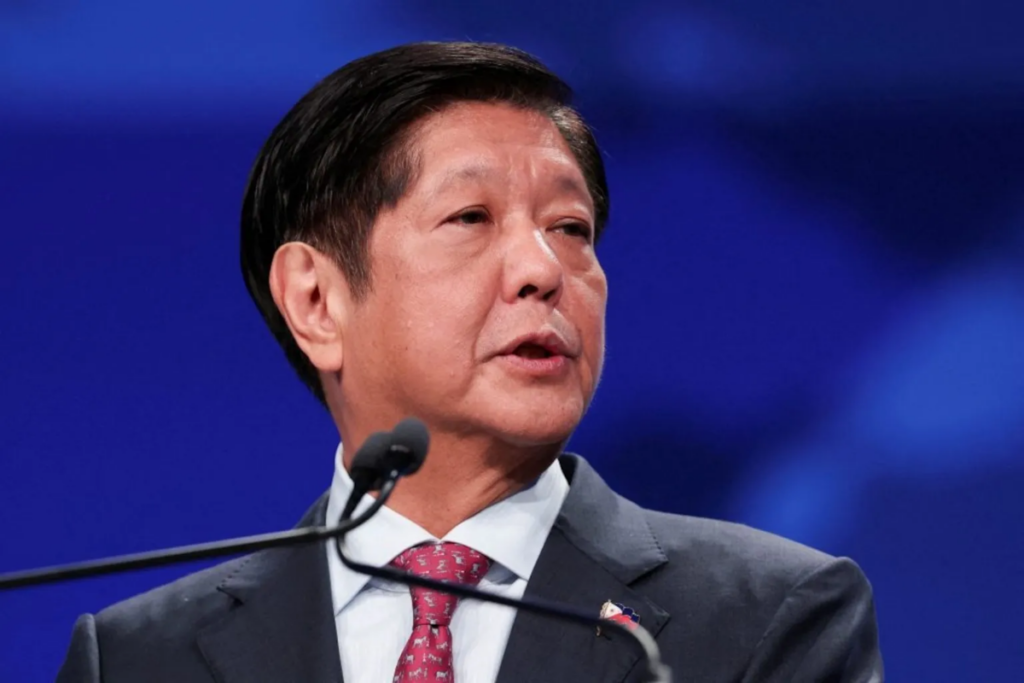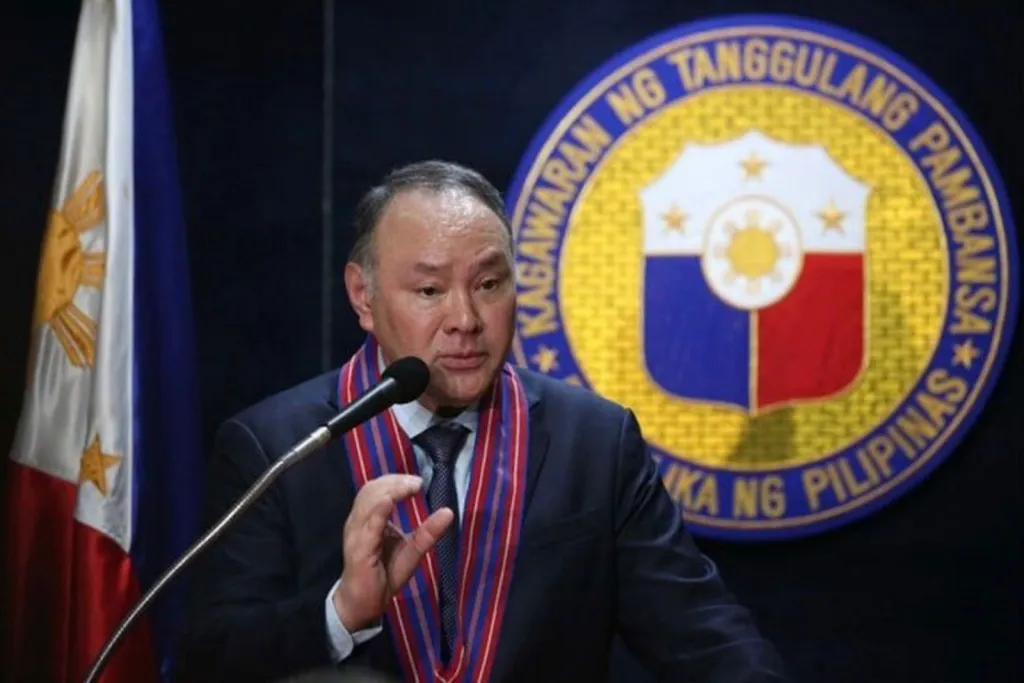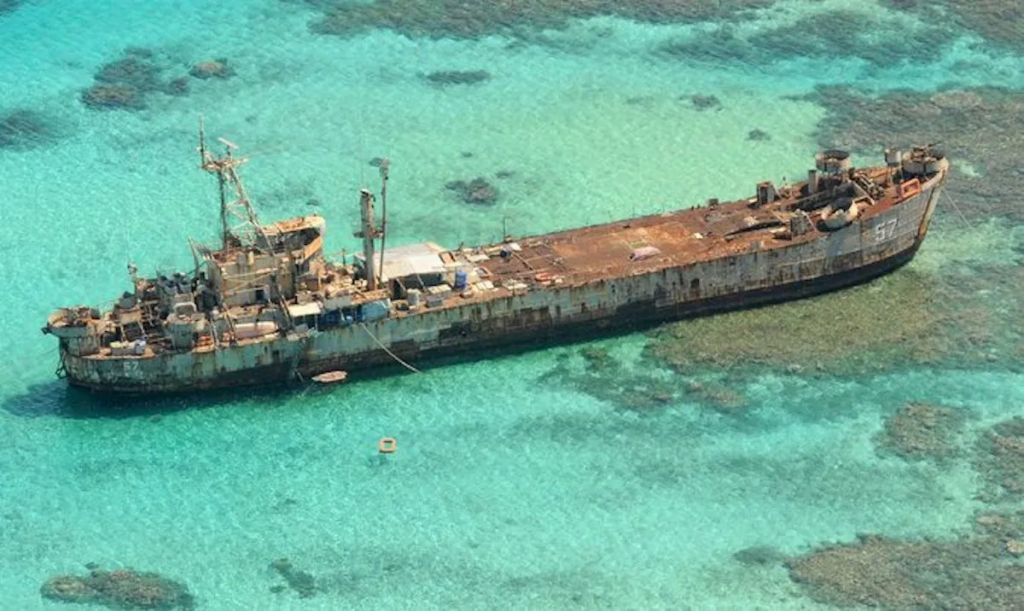Manila’s mixed messaging after armed melee with China exposes underlying weakness of Marcos Jr’s stance on South China Sea disputes

Philippine President Ferdinand Marcos Jr’s government isn’t as unified as it used to be on challenging China. Image: X Screengrab
(Written by: Richard Javad Heydarian. Published here in Asia Times, republished with permission.)
MANILA – The latest skirmish in the South China Sea, which saw Chinese maritime forces forcibly boarding then disarming Philippine navy personnel on a resupply mission, has jolted the Philippine government and exposed fault lines in President Ferdinand Marcos Jr’s once-unified administration.
By all indications, the latest Philippine rotation and resupply (RoRe) mission to the contested Second Thomas Shoal, which hosts a de facto Philippine military base atop the grounded BRP Sierra Madre vessel, was not coordinated among relevant government agencies.
The Philippine government’s contradictory statements after the unprecedented incident, which could have easily triggered an armed confrontation after a Filipino serviceman lost a thumb in the ensuing melee, have underscored divergent views at the highest echelons of power on how to handle China’s rising assertiveness in the nation’s Exclusive Economic Zone (EEZ).
With details of the incident trickling in after days of delay, the Philippine Executive Secretary Lucas Bersamin, who leads the newly created National Maritime Council, broadly dismissed the incident as “probably a misunderstanding or an accident” even as other top officials condemned it with strong language.
Shortly after, Philippine Defense Secretary Gilbert Teodoro Jr, however, insisted that the government was not downplaying the “aggressive and illegal use of force” by China. He maintained that what took place was “[a] deliberate act of the Chinese officialdom to prevent [the Philippines] from completing [its] mission.”
To be sure, political divisions amid a geopolitical crisis are nothing new to the Philippines, which is notorious for its noisy and fractious democracy.
Back in 2012, Filipino senators publicly squabbled over the country’s diplomatic mismanagement of the Scarborough Shoal crisis, which culminated in China’s de facto occupation of the South China Sea land feature.
Partisan and ideological divisions were also on display during the controversial presidency of Rodrigo Duterte, who openly courted China’s strategic patronage while lambasting Western allies over historical and human rights-related issues.
At one heated point, Duterte was at loggerheads with even his own political allies in the then-ruling PDP-Laban party – most notably the boxing sensation and former senator Manny Pacquiao, who adopted a more strident stance against China amid the Whitsun Reef crisis in 2021.
Marcos Jr, who ran and won handily on a “unity” platform, managed to maintain an element of coherence in his ranks during the early days of his rule.
This was especially true on the foreign policy front, as the Filipino leader adopted an increasingly assertive stance in the South China Sea, which has been popular with both the Filipino masses and the defense establishment.
Authoritative surveys have shown that over 90% of Filipino voters prefer a more assertive stance, including wresting back control of Philippine-claimed islands controlled by China.
Amid an upsurge of patriotic sentiment, however, entrepreneurial politicians and ambitious officials, who were largely silent on Duterte’s pro-Beijing policies, began brandishing their nationalist credentials.
In a dramatic turn, members of Congress, the Senate and other branches of the government began visiting disputed land features such as Thitu Island to project themselves as patriotic statesmen.
Meanwhile, veteran politician Teodoro Jr, a longtime Duterte ally who once offered to be the running-mate of Sara Duterte for a potential joint ticket in the 2022 elections, took over the Department of National Defense.
He occupied the same position under the Gloria Macapagal Arroyo administration (2001-2010) and was offered the same portfolio on multiple occasions by Duterte.
Barely a year back into his old office, Teodoro Jr oversaw a rapid and dramatic transformation of the nation’s defense policy. That’s included the rapid modernization of key Philippine military facilities, implementation of the Philippine-US Enhanced Defense Cooperation Agreement (EDCA), joint patrols and massive wargames with like-minded powers and the introduction of the Comprehensive Archipelagic Defense Concept (CADC), which aims to make the Philippines a modern and capable maritime power in the 21st century.
Meanwhile, veteran generals such as former military chief and interior secretary Eduardo Ano took over the National Security Council, while former Supreme Court chief justice Lucas Bersamin became Marcos Jr’s executive secretary.
The well-trusted and highly respected former Armed Forces of the Philippines (AFP) spokesman, Romeo Brawner, became the chief of the armed forces while rising star bureaucrats such as Jonathan Malaya and Jay Tarriela have played key roles in the National Security Council and the Philippine Coast Guard, respectively.
In many ways, Marcos Jr managed to assemble a “dream team” to oversee his South China Sea policy, which features a proactive “transparency initiative”, a sophisticated public diplomacy campaign, robust defense diplomacy and comprehensive development of maritime security capabilities.
The Philippines’ new South China Sea strategy, however, faced a rude awakening when China – after warning that its patience was “stretched to the limit” – adopted increasingly aggressive “gray zone” tactics to impose its will in the disputed waters.
First, China unilaterally imposed new maritime regulations that empowered its coast guard forces to apprehend any “foreign trespassers” across its vast nine-dash line area of claims across the South China Sea basin.
Tensions reached new heights when Chinese forces swarmed and then boarded the Philippine RoRe patrol vessel, even though it risked a direct military confrontation.
China’s growing risk appetite and willingness to leverage its preponderance of force has exposed the limits of the Philippines’ current, more muscular strategy. On one hand, Manila was forced to downplay the incident amid America’s perceived as wavering commitment to come to its defense over contested sea features.
Facing a tough re-election campaign and multiple geopolitical flashpoints across the Eurasian landmass, the Joe Biden administration has shown little interest in offering direct military support in response to China’s non-kinetic use of force, which severely injured at least one Filipino serviceman.
Moreover, the latest incident has reinforced earlier rumors of rifts within the Philippine security establishment, reportedly between National Security Adviser Ano and Defense Secretary Teodoro Jr.

Gilberto “Gibo” Teodoro Jr. holds his first press briefing as the newly appointed secretary of the Department of National Defense (DND) in Camp Aguinaldo, Quezon City on June 07, 2023. Image: X Screengrab
The latest RoRe mission was not fully coordinated with other agencies, including those under the rubric of the National Task Force for the West Philippine Sea (NTF-WPS) headed by the Ano, but instead reflected the unilateral prerogative of the defense chief.
Some critics have implied that this was likely driven by the political ambitions of Teodoro Jr, who may be mulling running for elected office in the near future. Others have pointed to genuine disagreements among top leaders and the inherent difficulty of resisting a powerful adversary like China.
On multiple occasions, Teodoro Jr has openly questioned the wisdom of diplomatic engagement with China, a surprisingly hardline position that stands at odds with other Cabinet members.
“It’s not fruitful. There should be bilateral discussions, but at a time when we prove, when we are sure – this is my personal belief – that formal bilateral discussions should only be held when it is proven that they are sincere,” Teodoro Jr said referring to China in one of his interventions last year.
“It must be based on fundamental principles and it must be based on sincerity, that it shall not be used merely as a weapon in order to constrain the Philippines,” he added, underscoring his perceived need for a results-oriented diplomatic approach.
In contrast, other top government officials have maintained the primacy of engagement, with Executive Secretary Bersamin most recently arguing that the recent spats “can easily be resolved” through diplomacy between Manila and Beijing.
The other likely sticking point is the future of the government’s “transparency initiative”, which has been led by the Philippine Coast Guard in tandem with the National Security Council and has consistently and loudly publicized China’s aggressive tactics in the disputed waters.
Analysts now wonder if the Marcos Jr administration will recalibrate its naming and shaming of China’s aggressive tactics in exchange for a new modus vivendi in the disputed areas, especially regarding resupply missions to the Second Thomas Shoal.

The Sierra Madre, the grounded ship used by the Phillippines as a guard station on Second Thomas Shoal. Photo: US Naval Institute
Meanwhile, Beijing-friendly elements in the Philippines have seized on the latest incident to pressure the Marcos Jr administration to change course. Most notably, Duterte has criticized his successor for unnecessarily provoking tensions with China by more tightly aligning with US interests.
While asserting Philippine claims in the disputed areas, Duterte has claimed that his Beijing-friendly foreign policy was ultimately more successful in preserving an element of stability in the South China Sea.
“We didn’t have a conflict with China then. We were free to fish in and out of the area. Nobody was bugging us and there was no issue of territory,” Duterte said in a recent episode of his television show while pressuring Marcos Jr to adopt a more conciliatory position vis-à-vis China.
Follow Richard Javad Heydarian on X at @Richeydarian








